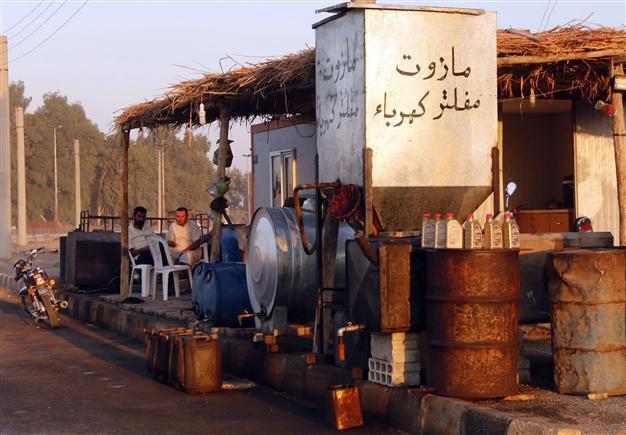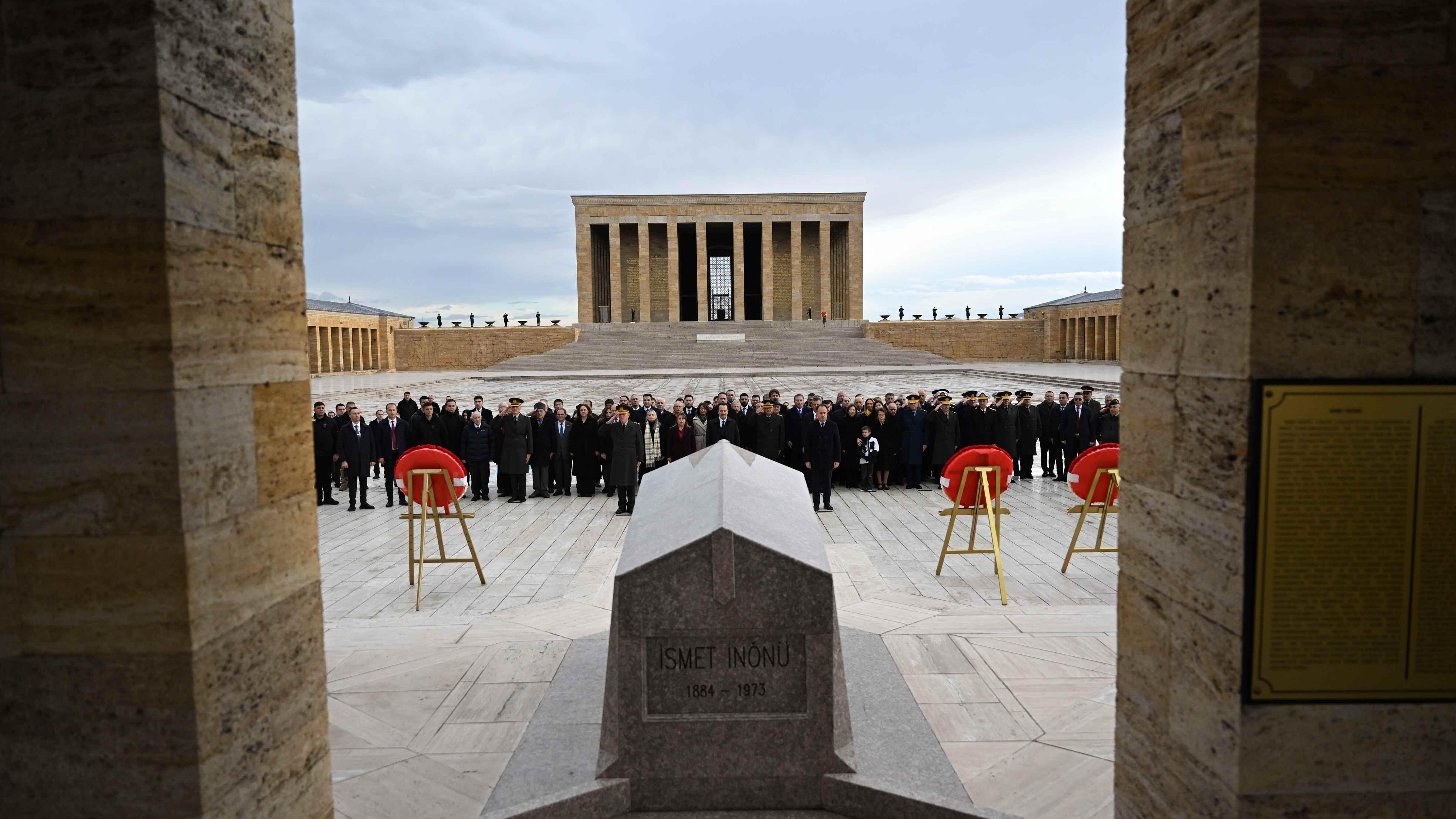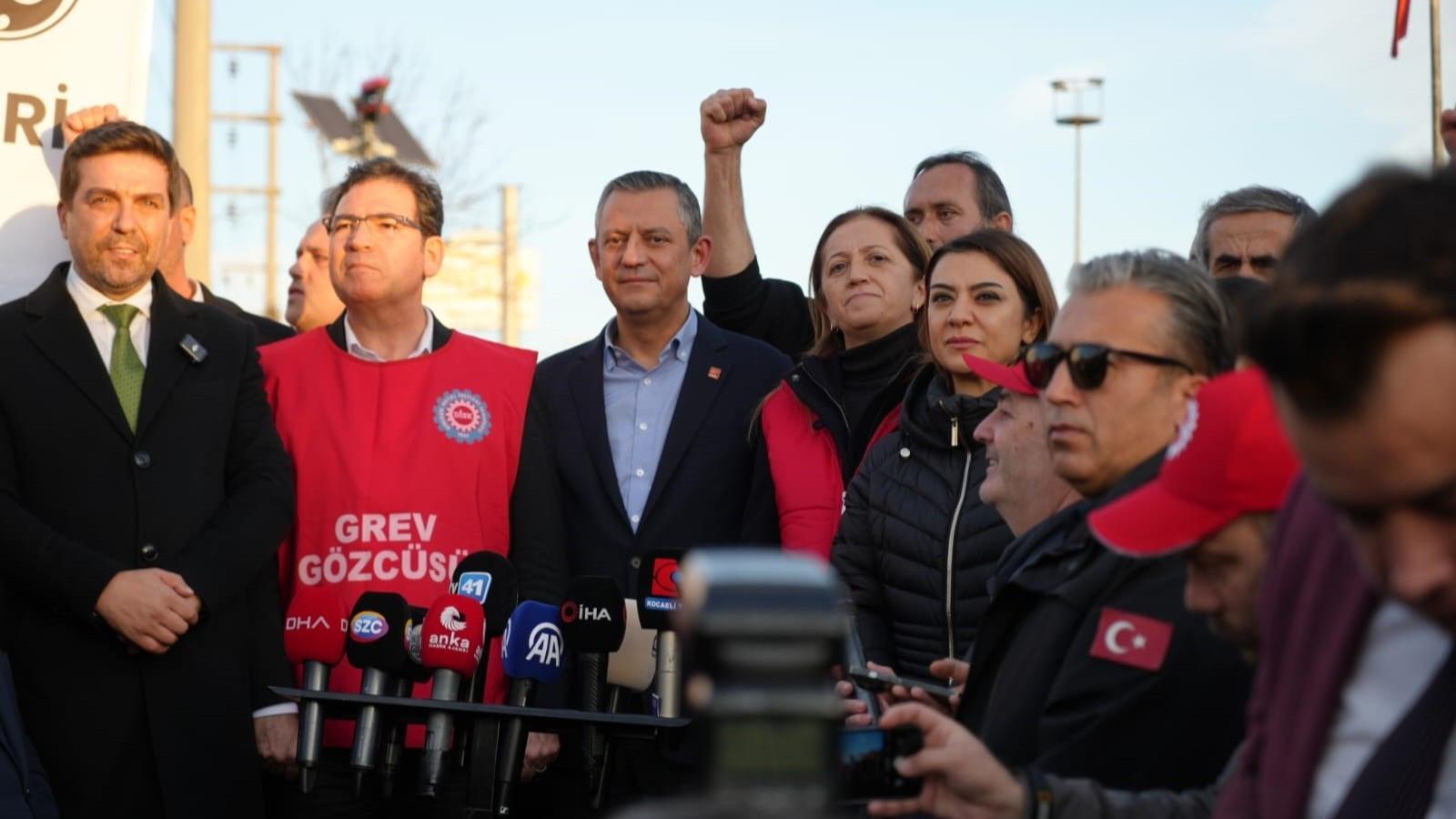US says working with KRG to stop ISIL oil smuggling
SINGAPORE - Reuters

Street vendors selling diesel and gasoline wait for customers along a street in the ISIL's stronghold of Raqqa September 30, 2014. REUTERS Photo
The United States is working closely with the Iraqi Kurdistan Regional Government to clamp down on oil smuggling in a bid to cut off a key source of funding for Islamic State of Iraq and the Levant (ISIL), a senior U.S. official said on Oct. 30.ISIL militants have seized oilfields and refineries in north Iraq and have been exporting oil through smuggling networks to help finance their campaign, along with ransom, extortion and other criminal activities.
“We are working with the regional government in Arbil to support their efforts in stopping those shipments and those smuggling operations,” Acting Energy Envoy for the United States, Amos Hochstein, told Reuters at an energy conference.
“It is of critical importance to the United States, the international community and to Kurdistan itself to see an increased effort to stop that smuggling.”
The Kurdistan Regional Government (KRG) has arrested a number of people for smuggling, said Hochstein, who is meeting with officials in countries neighboring Syria and Iraq to stop the illegal oil flow.
Reuters reported in July that ISIL had sold oil via smugglers to Turkish traders at vastly discounted prices while some of the crude had also been refined in Syria and sold as gasoline in Mosul.
An oil ministry adviser had estimated that in the first two weeks of July, ISIL made nearly $1 million a day.
The United States is working with the KRG to identify oil routes, trucks and traders involved, and trying to block smuggling via border crossings and the purchasing side, Hochstein said.
“The oil is being smuggled through different routes, into different countries,” he said. “So it has to be an entire value chain effort to stop Islamic State smuggling efforts.”
But oil routes keep shifting and coalition airstrikes have also changed the dynamic of the flow.
“The routes change, there’s some maybe going through Turkey, Iran, KRG and potentially through Jordan,” he said. “It’s not static and that makes it difficult but I think the effort is succeeding in slowing that process down.”
Hochstein was hopeful that the new government of Iraq could reach an agreement on oil exports from Kurdistan. Baghdad has claimed that Kurdish oil shipments are illegal.
“We believe that it would benefit all parties, if oil was exported from all parts of Iraq through agreement, and that will expand the pie and therefore expand the revenues for all Iraqi people,” he said.
“We also believe that this is the right time, this is a great window of opportunity, for the two parties to get together and reach that agreement.”
















